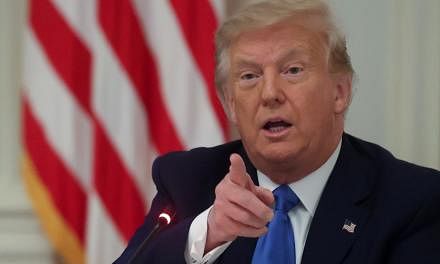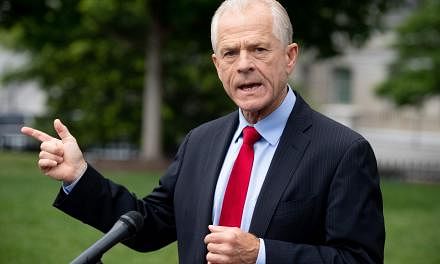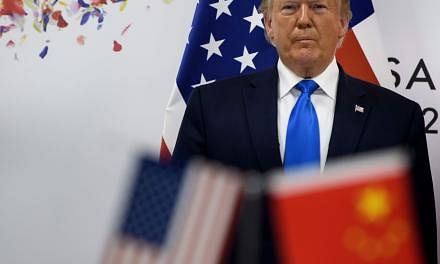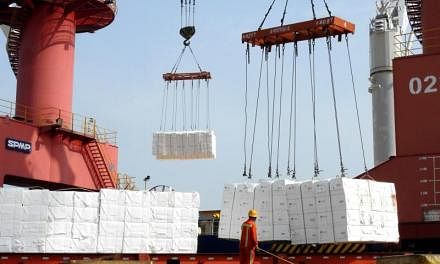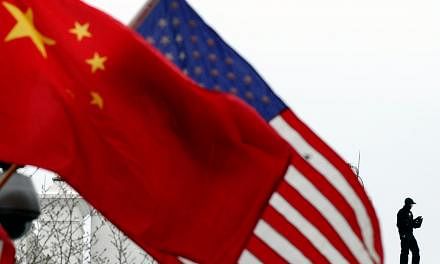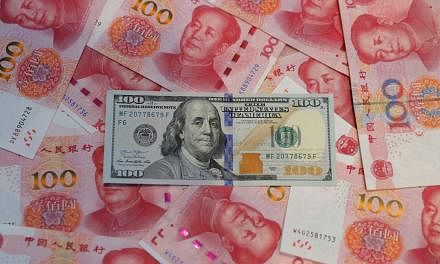Despite his advisers telling him otherwise, Canute was unable to hold back the tide.
Neither will those opposing economic globalisation be able to hold back what is the tide of the times.
There are people who hope to break the interdependence of the world's economies.
And some even advocate decoupling the world's two largest economies. Such intentions, which have become evident since the trade frictions escalated between China and the United States, are trying to halt the momentum of economic globalisation. But history will ultimately prove them foolish.
These people have China in the cross-hairs. No matter whether the imposition of unreasonable tariffs or the suppression of China's technology, their aim is to disrupt the global division of labour and the global industrial structure, or, more fundamentally, as some claim, kicking China out of the global supply chain.
If such intentions are realised, they will have catastrophic consequences for the world.
Over hundreds of years, technology has transformed manual labour to production-line manufacturing in most parts of the world, and economic globalisation has established a division of labour that forms a unified global economic system. Now the latest technology revolution, the rapid advance of information technology, is injecting fresh impetus into economic globalisation, heralding the unprecedented development of the world.
Most modern products stem from international industrial cooperation. The market plays a decisive role in allocating resources and capital in an efficient way, making it possible for people worldwide to enjoy quality commodities and services at affordable prices. Generally speaking, economic globalisation is in line with interests of all parties, despite the fact that developed economies which are perched at the top of the value chain benefit most from the process.
Given that they have reaped the rewards of the process they started, it is to the surprise of many that some in the developed world have abruptly changed their views on economic globalisation, flipping from being its leading protagonists and proponents to its biggest critics and opponents. Why? Because, for one thing, they attribute some thorny domestic challenges, such as widening income gaps and various social problems, to economic globalisation. In particular, they lay the blame for their domestic ills on emerging market economies, claiming that their fast growth has come at their expense.
But these malcontent people refuse to acknowledge that it is their corporations, now multinationals, that have made the biggest profits after relocating their production lines to developing countries. This has benefited shareholders but resulted in the loss of jobs in their home countries.
The relocation of industries and the allocation of resources will never cease, since the cheese is not only moved from one place to another, but also more cheese is created in the process.
Undoubtedly, further reform of the global governance system and world order is necessary to ensure that more people can enjoy the cheese. To resolve the problems with economic globalisation, it must be more open, inclusive and balanced. It is ridiculous to give up eating for fear of choking. No countries are capable of halting the process of economic globalisation. The only rational way to deal with it is to adapt to it, and all countries should strengthen their macro-policy coordination.
Economic globalisation has always been a double-edged sword. All participants in it should be prepared to give first. When China gained accession to the World Trade Organisation (WTO), it faced huge risks as its national industries met great challenges from foreign competitors. Back then, there were fierce debates on whether China should enter the WTO before having modernised industries and cutting-edge technologies.
Indeed, China paid heavy costs for its integration into the global trade system, large numbers of workers were laid off, and many industries were reshuffled. But the Chinese managed to overcome these repercussions through reform and responsive self-adjustment, paving the way for its economic take-off afterwards.
There is no doubt that economic globalisation is experiencing some pain, and how to alleviate that is a challenge for the world. It is fair to say the crux of the ongoing trade frictions is the struggle between pro-globalisation and the anti-globalisation.
But as Chinese President Xi Jinping has said, "Globalisation is a historical trend that will continuously develop... the anti-globalisation mentality is an undertow in the big tide. It can send out some ripples and make some waves, but it cannot stop the trend of the times."
To solve domestic income gaps by means of a trade war is like trying to go south by driving the chariot northwards, and trying to dismantle the globalised economic system is nothing but a fool's errand to overthrow all world economic and trade theories since Adam Smith and David Ricardo. It is impossible to artificially sever flows of capital, technology, commodities and talents, for the ocean of the world economy to recede into some isolated lakes and rivers.
Technology provides a perspective with which to observe the inevitability of economic globalisation. Information technology has crossed all borders weaving the world together. Blacklisting Huawei, an industrial leader in the next generation of telecommunications technology, is thus tantamount to shaking a key pillar of the global economy. All countries should oppose anti-globalisation gunboat policies to prevent a global economic crisis from happening.
In the face of the grim situation that has unfolded, it is not a question of which side to take between countries, but which side to take on historical trends. Now is the time to say no to the iron curtain being forged by anti-globalisation.
The widely anticipated G20 Summit in Osaka, along with the meeting between leaders of China and the United States, represents a new chance to create global synergy in the right direction.
Now is the time to build bridges - not walls.


